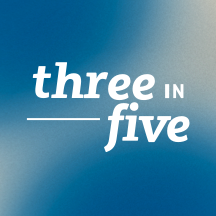Explore institutional insights
- Please enter a search term.
-
Insights
Stay up to date

Market update

Investor insights
-
Investments
Stay up to date

Market update

Investor insights
-
About us
Stay up to date
Learn more about our investment group

Market update

Investor insights
- Please enter a search term.
- Investments
-
Insights
- Back
- Insights
- Insights Overview
-
All insights
- Back
- All insights Overview
- Cash equitization: liquidity with flexibility
- Q3 2021: Investment grade private credit update
- Evaluating private credit opportunities in today’s market
- Leverage and derivatives, powerful tools for pension plans
- 2022 BentallGreenOak Perspective report
- Canadian Pension Risk Strategies 2022
- 2022 Mid-year Global Investment Outlook
- 2022 Corporate Responsibility Summary
- Q3 2022 Investment Grade Private Credit Market Update
- Q3 2022: Quarterly Inflation Watch
- Crescent Capital Markets Q3 2022 Update
- Multi-Asset Credit Strategy: October 2022 Update
- Update on the Real Return Bond Market
- SLC Management Update: real return bonds cessation announcement
- Multi-Asset Credit Strategy: November 2022 Update
- Multi-Asset Credit Strategy: December 2022 Update
- 2023 Global Investment Outlook
- Diversifying fixed income portfolios with alternatives
- Q4 2022: Quarterly Inflation Watch
- Q4 2022: Investment Grade Private Credit update
- Multi-Asset Credit Strategy: January 2023 Update
- Federal budget implications for Canadian preferred shares
- Q1 2023: Quarterly Inflation Watch
- Q1 2023: Investment Grade Private Credit update
- 2023 Mid-year Global Investment Outlook
- Q2 2023: Investment Grade Private Credit update
- July 2023: Inflation watch
- Q3 2023: Investment Grade Private Credit update
- September 2023: Inflation watch
- Narrowly syndicated credit: yield opportunities in an underexplored niche
- December 2023: Inflation Watch
- 2024 Global Investment Outlook
- Q4 2023: Investment Grade Private Credit update
- Looking under the hood at below-IG fixed income
- Q1 2024: Investment Grade Private Credit update
- Q1 2024: Inflation Watch
- Canadian Pension Risk Strategies 2024
- Insurance solutions
- Retirement plan solutions
- Sustainable Investing
- Market updates
-
Three in Five Podcast
- Back
- Three in Five Podcast Overview
- Mark Attanasio on the changing landscape of private credit
- James Slotnick on the U.S. midterm elections
- James Slotnick on the 2022 U.S. midterm elections
- Andrew and John on commonalities in investment grade private credit and narrowly syndicated bank loans
- Laila on operational considerations for investment grade private credit investors
- Cliff Corso on opportunity in the high net worth market
- Kate McKeon on sustainable investing and Net Zero
- Ben Greene on education, allyship, and the trans experience
- Melissa on the importance of the client experience
- Cristina Medina on Invest in Girls
- Steve on the Canadian P&C insurance market
- Rich and Peter on growing stress in the banking sector
- Doug on the debt ceiling
- Jim Blakemore on real estate debt
- Chris and Tim on the Special Financial Assistance Program for Taft Hartley plans
- Veronique on the evolution of LDI investing in Canada
- Chris Wright on the future of private credit
- Beth Brown on workplace burnout
- D.J. on the CMBS market
- Josh Davis on inner mastery and effective leadership
- James Slotnick on the politics of raising the U.S. debt ceiling
- Kevin Quinlan on climate change as a material investment risk
- Steve Peacher on the 10-year anniversary of SLC Management
- David Hamlin on fundamental credit research
- Michael Schnitman on alternatives in the high net worth space
- Steve Peacher reflects on challenges and milestones in 2023
- Subscribe
- About us
- Careers
- Contact us
- Newsroom
- Thank you
- CANADA | EN

Welcome!
Please select your country and language below:
Episode 57
JUNE 29, 2022
Ashwin and Chris on the importance of recognizing and addressing LGBTQ issues in the workplace
Ashwin Gopwani, Managing Director, Client Solutions at SLC Management and Chris Wang, Managing Director of Crescent Capital, discuss the importance of raising awareness and building a culture of allyship for the LGBTQ community at all levels of organizations.
Steve Peacher: Thanks everybody for joining this this “Three in Five” podcasts I’m Steve Peacher President of SLC Management. Today I’m really pleased to be joined by two people, Chris Wang who's managing director at Crescent Capital and Ash Gopwani who’s the managing director at SLC Management. And today's topic is a talk about LGBTQ issues in the workplace, and so I want to start Chris with you. By the time we release this podcast in a couple weeks, you will have co-hosted on SLC/Crescent Pride conversation with Ben Greene and Ben is a have an activist, commentator transgender activist in the community that talks about workplace issues. Tell the listeners more about this event, and why it's important for managers like Crescent Capital or like SLC Management to host these kind of events?
Chris Wang: Thanks Steve for having me. We had Ben join us at Crescent last year for a foundational diversity, equity, inclusion session titled “Trans 101.” It was a very educational and inspirational session, where I personally learned a lot, you know the session help highlight things from how to use inclusive language to how to recognize and call out micro aggressions. Micro aggressions are words or behaviors that are subtly or indirectly discriminatory or derogatory, hostile, and I think these are things that are particularly important to understand and be aware of. Most importantly, for me the session with Ben really highlighted the importance of being an ally, you know what allyship means, how to uncover your own biases. Diversity, equity, inclusion doesn’t work if you don't have everybody on board. That means a lot of allyship across the board, so the session with Ben was a very tremendously educational and fulfilling session, I think at Crescent last year, we're just thrilled to be able to have that conversation with him again for Pride month this year. And Ash maybe you want to kind of walk through a little bit about how important, why this is really important for an organization like SLC or Crescent to take seriously.
Ashwin Gopwani (he/him): I’m happy to Chris and thanks Steve. For having me, I’ve had some experiences in the past where I’ve been in organizations where I’ve been out in the organization, I’ve been very comfortable sharing that I’m a member of the LGBTQ community, but I’ve also had experiences where I had that information and I kept it to myself and those tended to be earlier on in my career. And I wouldn't have thought that the impact was going to be that big, but I can tell you personally from a mental health perspective from a bringing myself to work respective, being comfortable at work, it made a huge impact. I feel like I’m really able to deliver a lot more now that I’m not having to spend so much time parsing, you know, what do I say to this person or what version of myself I already shared in this environment, it's just really freeing to be able to be myself at work, and I think that you know when SLC hosts events like this it really shows that this is an environment where we do want that. We want people to feel comfortable hear these casually homophobic comments thrown around, and I think it's always important to demonstrate the kind of culture we're trying to create.
Steve Peacher: In addition to hosting these kind of more formal discussions, what are things, from your perspectives, that organizations and maybe specifically asset managers can do to support their LGBTQ colleagues?
Ashwin Gopwani (he/him): It is, seeing events like these are great step, but I think it probably, it doesn't stop there. I think it's really important to make sure that as an organization we're doing everything that we can to demonstrate to the LGBTQ community that we're trying to be inclusive of them. So I know that there's an initiative going on at SLC right now related to normalizing talking about what your pronouns are in either Zoom names or details in signatures. I think, in general, one of the things that I’ve really liked about Sun Life and SLC in this respect, is that you can really see the celebration of things like Pride they're not just for the LGBTQ community, you can really see that when we have an event, when we march in the parade which we're doing this year, it really is the whole the whole organization that's invited participate and I’ll also say that that's not something I’ve always seen, I’ve typically seen in some organizations it's mostly the LGBTQ community that attend these events. And you know when you see your senior leaders standing up and saying, ‘hey like we support this,’ I think it goes a long way to tell employees that they're valued.
Chris Wang: I would totally agree with that, I think the building the right culture is so important, and it starts from the top and it starts from the bottom, it should permeate the entire organization. I think one perspective is a culture of empathy. I think empathy is something where you know if you can truly understand how somebody feels, I think it's very different from sympathy which is just acknowledging how they feel. So I think these types of events, these types of activities, the focus, the publicity, the visibility, helps build that culture of empathy.
Steve Peacher: You know one thing that I think helps build that is anecdotes or examples, where it can be brought to life to an employed as to what they can do, or what they shouldn't do, to make everybody comfortable in the workplace. So are there any experiences that you guys could share that would be illuminating for all the listeners around things you've experienced or witnessed or whatever that would help illuminate some of the issues and some of the approaches and actions that people should take in the workplace to create the kind of inclusive environment that you're talking about?
Chris Wang: One of the things that Ben mentioned before, is just understanding your own biases and some of that is assumptions. So, one thing that I’ve personally seen and felt is the assumption that I have a wife and children. The children part is true, I do have kids, but I don't have a wife. So when I talk to clients, when I’m with coworkers or industry contacts, it's a constant coming out in a way, because you talk about your children, about school and then there's the default assumption and then you have to correct them. And so, that is definitely part of it. It's also a constant education in a way, because I think not everybody has met a LGBTQ family, you know family with the kids and two dads, and so there is that constant education component of we're just like you in many ways, and different in some others and that oftentimes leads to plenty of interesting questions, some of them are appropriate, some of them are not. But you know it's good I think it's a constant education, and I think that visibility does matter, I think the more people know and see families that look different from them or individuals who are different from them, I think it betters everybody's understanding.
Ashwin Gopwani (he/him): From my point of view, like, I know, Chris we've chatted about this before, but the invisibility of the diversity is a bit of a factor there, because it is very easy for people then to make assumptions about you if that's not something that they can see. And I think that there's a little bit of a dynamic, you know when someone does that say, you know ‘wife and kids,’ I bet there's even a calculation of do even like correct them in that case, is it easier to leave it leave it alone? Like for me personally, depending on how much time I have I don't think I’ve always have corrected people to say, actually not a wife. I’d say later on in my career I’m a little bit more bold, maybe a little bit more privileged because I’ve had a couple of years under my belt. I probably don't feel as worried about any negative ramifications that could happen, but probably by and large not true for a lot of our colleagues, and maybe even people working at our clients. It does take a certain level of comfort and it's kind of a dilemma that I think everybody's faces. I think it's worthwhile for people to just recognize that that's a challenge that LGBTQ people, not just in our company but in other finance organizations, other investment organizations, are facing. And Chris you and I were also reflecting that you know we don't see too many other LGBTQ people within the investment industry in general, at least not at the rate we would think that they exist in the general population. And to me, at least, that suggests that we do need to do a little bit more to make sure that, they're probably there and if they are there that they feel comfortable like having this conversation, coming out at work and I think that's why I’m really glad that we're doing what we're doing. I’m glad, I think that this event with Ben, we're going to help us to have really good conversations internally and hopefully make our own SLC employees, our own Crescent employees feel more comfortable.
Steve Peacher: You know, listening to you guys give those examples about the biases that may creep into somebody, saying that when you mentioned kids, you know I’m trying to think of my own experience. I can't think of an example, but I’m sure there's some point in my own, you know, history where somebody’s talked to me about kids and I, maybe I’ve said the wrong thing because I assumed that they had a wife or a husband. And then inadvertently said something. And I think those are the kind of things that make everybody think about ‘geez have I said something that could have offended somebody inadvertently, and how can I be careful about that and be more selective with what I say, or not?’. And I would also say, listening to you guys, you know you talked, you were talking about what an organization can do to be more inclusive. It made me think that it's also a two-way street, and I think you guys are living up to that. Meaning, it takes people like you guys who are willing to be proactive – setting up events, hosting events, being part of interviews like this to help bring some of these issues to light. And I think then that feeds on each other, because I, then I think that helps to move an organization along. And then I think the more an organization is moved along in this regard, the more people are willing to follow the path that you guys have set, in terms of being proactive in the organization. So that's really what we're trying to engender, so I really appreciate you guys taking the time today. Looking forward to the conversation with Ben Greene so thanks guys.
Ashwin Gopwani (he/him): Thanks for having us.
Chris Wang: Thanks guys.
Steve Peacher: And thanks everybody to listening to this episode of “Three in Five.”
This podcast is intended for institutional investors. The information in this podcast is not intended to provide specific financial, tax, investment, insurance, legal or accounting advice and should not be relied upon and does not constitute a specific offer to buy and/or sell securities, insurance or investment services. Investors should consult with their professional advisors before acting upon any information contained in this podcast. This podcast may present materials or statements which reflect expectations or forecasts of future events. Such forward-looking statements are speculative in nature and may be subject to risks, uncertainties and assumptions and actual results which could differ significantly from the statements. As such, do not place undue reliance upon such forward-looking statements. All opinions and commentary are subject to change without notice and are provided in good faith without legal responsibility.



